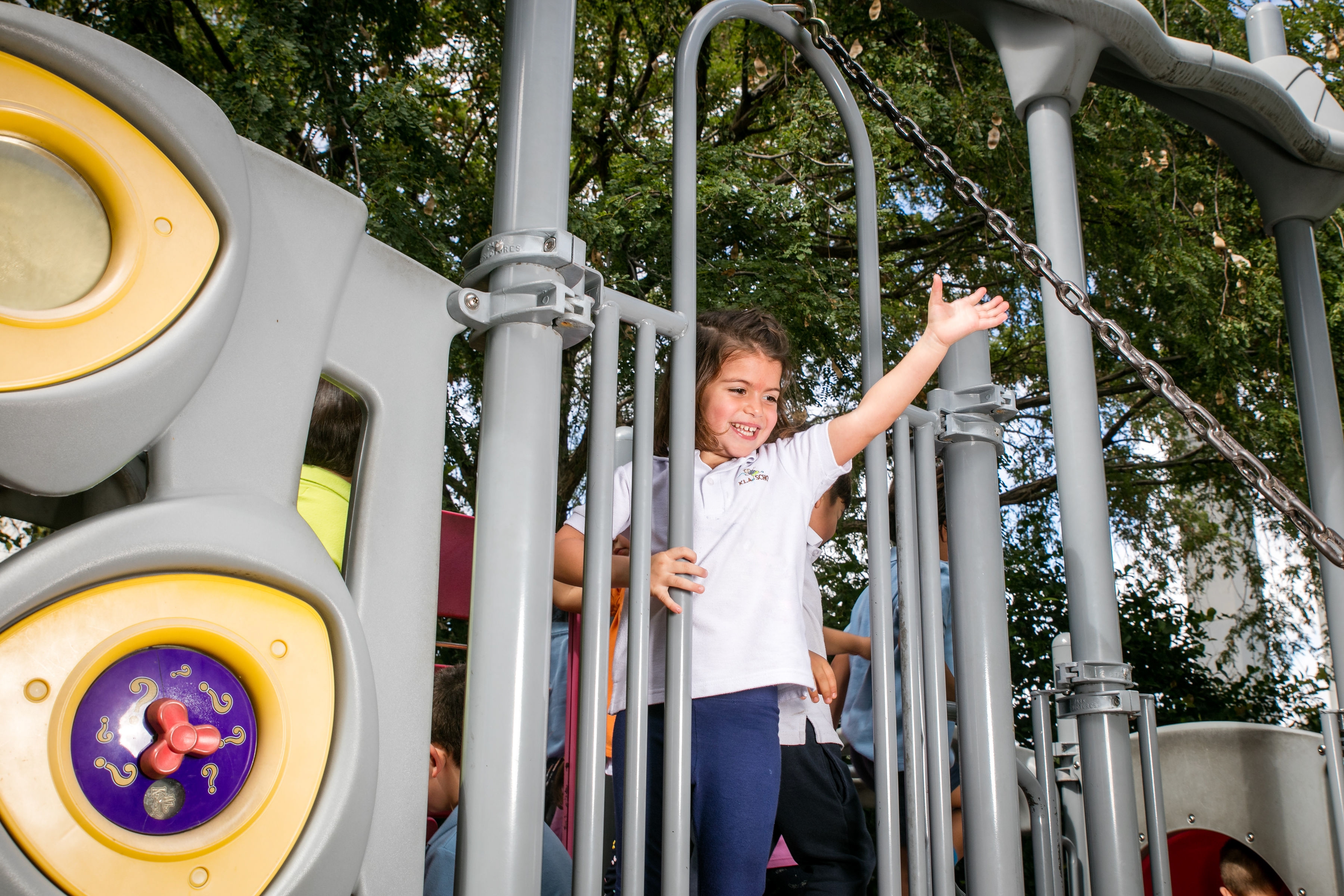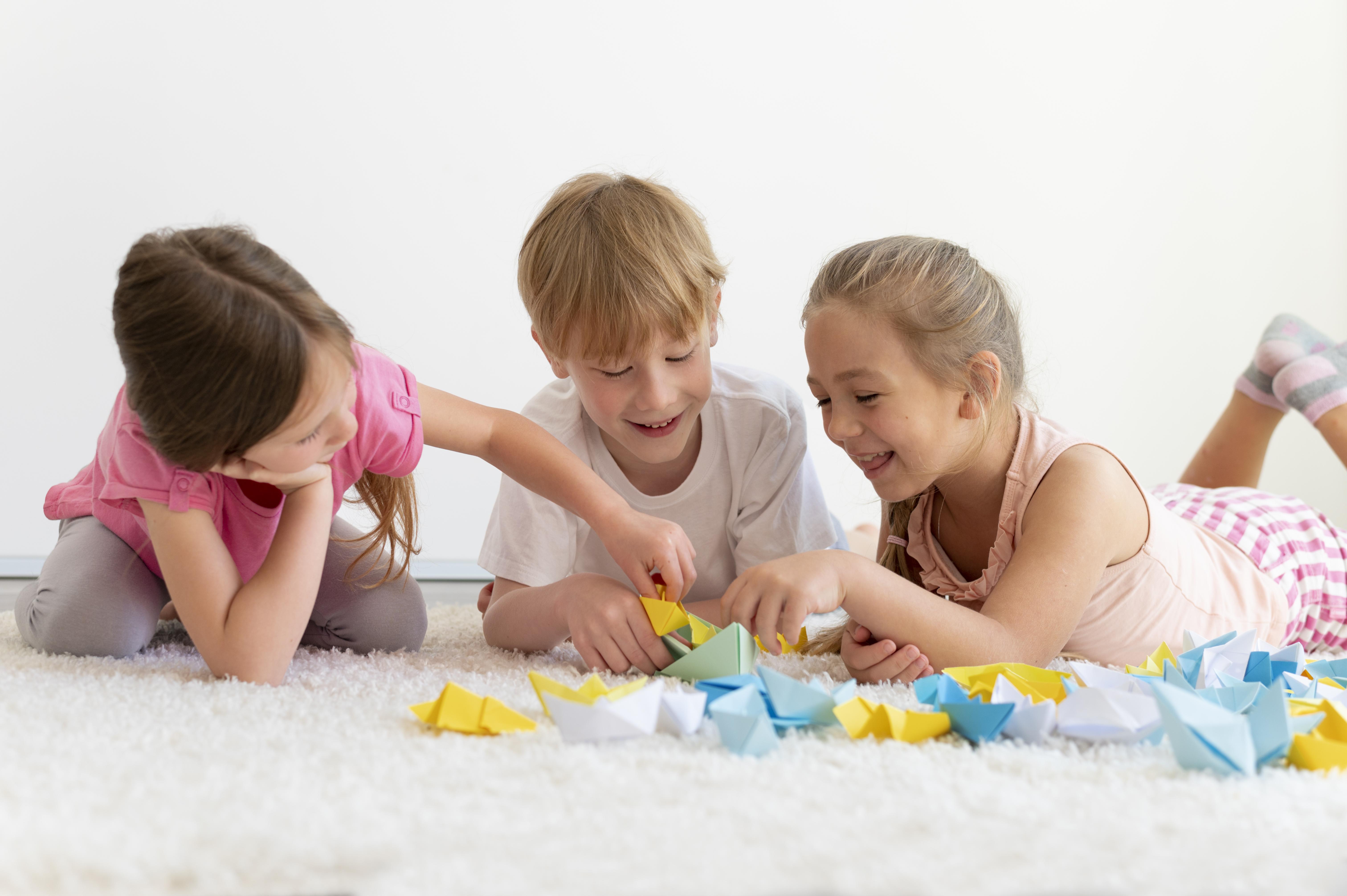How to Support Your Child's Language Skills: 25 Fun DIY Games
Topics: Child Development
Age Range: Preschool
Strong language abilities are the foundation for effective communication, literacy development, and social interaction. Early childhood is a critical period for fostering these skills, and incorporating activities to develop language skills in preschoolers can make learning engaging and effective. Parents and educators often wonder how to improve children's language skills in a natural and fun way. The answer lies in interactive, play-based experiences encourage children to listen, speak, and express themselves confidently.
Hands-on activities, storytelling, and creative games help young learners grasp new vocabulary, understand sentence structure, and enhance comprehension. Children develop confidence in their communication ability through role-playing, phonics exercises, or interactive reading. These 25 fun and easy DIY games provide exciting ways to strengthen verbal skills while ensuring children remain actively involved in learning.
1. Storytelling Cubes
Create dice with pictures or words on each side. Have children roll the dice and create a story using the elements that appear. This game enhances creativity, builds vocabulary, and helps children form complete sentences.
2. Mystery Bag
Place various objects inside a bag. Ask the children to describe what they feel without looking. This activity encourages descriptive language, sensory exploration, and adjectives.
3. Word Fishing
Attach paper fish with words or letters written on them to a fishing pole (magnets and paper clips work well). Have children "catch" a fish and use the word in a sentence. This game strengthens vocabulary and sentence construction.
4. Puppet Conversations
Use hand puppets to engage in pretend conversations. Ask open-ended questions to prompt responses and encourage expressive dialogue. This activity supports role-playing and social language development.
5. Sound Hunt
Choose a letter sound and ask children to find objects around the house or classroom that start with that sound. This reinforces phonemic awareness, which is crucial for early reading skills.
6. DIY Flashcards
Create flashcards with pictures and words. Show the child a card and ask them to name the object, describe it, or use it in a sentence. This improves word recognition, comprehension, and recall.
7. Sentence Building Blocks
Write words on blocks or strips of paper. Have children arrange them into meaningful sentences. This game helps children understand sentence structure and how words fit together.
8. Rhyme Time
Say a word and ask children to come up with rhyming words. This phonological awareness game strengthens pre-reading skills and expands vocabulary.
9. Object Sorting and Naming
Gather different household items and have children categorize them while naming and describing each item. This activity builds classification skills and enhances descriptive language.
10. Guess the Sound
Play recorded sounds of everyday objects or animals. Ask the children to identify the sound and describe what they hear. This game enhances listening comprehension and auditory processing.
11. Silly Stories
Start a story and have children take turns adding sentences. This activity encourages storytelling skills, imagination, and cooperative language use.
12. Letter Hunt
Write letters on sticky notes and place them around the room. Have the children find them and say a word that starts with that letter. This strengthens letter recognition and vocabulary building.
13. Label Everything
Use sticky labels to name objects around the house or classroom. Encourage children to read them and use the words in sentences. This provides constant exposure to print and word associations.
14. Simon Says with a Twist
Modify this classic game by adding descriptive instructions, such as "Simon says touch something blue and soft." This improves comprehension, vocabulary, and listening skills.
15. Follow the Story Map
Draw a simple map and create a story that follows the path. Let children add details and expand the narrative. This enhances sequencing skills and storytelling abilities.
16. Emotion Charades
Act out different emotions and have children guess and describe them. This helps in understanding feelings and expanding emotional vocabulary.
17. Grocery List Game
Write a grocery list with pictures and words. Ask children to "shop" for items while naming and describing them. This builds vocabulary related to everyday experiences and encourages verbal expression.
18. Opposites Match-Up
Create cards with opposite words (big/small, happy/sad). Have children match them and use them in sentences. This strengthens comprehension of antonyms and builds descriptive language.
19. What’s Missing?
Place several objects on a tray, let children observe, then remove one and ask them to identify what’s missing. This strengthens memory, descriptive abilities, and attention to detail.
20. Picture Walk
Before reading a book, look through the pictures and discuss what might happen in the story. This boosts prediction skills, comprehension, and vocabulary.
21. Telephone Game
Whisper a sentence to a child and have them pass it along. Compare the final version with the original to enhance listening skills, memory, and articulation.
22. Create a Word Jar
Write new words on slips of paper and place them in a jar. Pull one out each day and challenge children to use it in conversations. This expands vocabulary and language confidence.
23. Sensory Bins with Storytelling
Fill a bin with different textures and objects. Have children explore and create stories based on what they find. This enhances descriptive language and creative expression.
24. Alphabet Treasure Hunt
Hide letter cards around the house or yard. Have children find and name them, then think of words that start with each letter. This reinforces letter recognition and vocabulary.
25. DIY Board Game
Design a simple board game with spaces that require children to answer questions, describe pictures, or complete sentence prompts. This combines fun with language development and critical thinking.
Activities to Develop Language Skills in Preschoolers
Developing language skills in preschoolers is crucial for their overall communication growth. These activities cater to young learners by integrating play and learning:
- Language skills for 2-year-olds: Focus on simple vocabulary, pointing to objects, and naming everyday household items.
- Language skills for 3-year-olds: Encourage more complex sentence formation, storytelling, and word association.
- Developing language skills in preschoolers: Utilize activities like interactive reading, pretend play, and open-ended questions to boost expression and understanding.
KLA Schools: Encouraging Language Development Through Play
At KLA Schools, we believe in fostering a love for communication through play-based learning. How to improve children's language skills is at the heart of our innovative preschool programs, ensuring that children build confidence in expressing their thoughts and emotions. Our innovative preschool programs integrate activities to develop language skills in preschoolers, guaranteeing that children build confidence in expressing their thoughts and emotions. We nurture young learners ' communication ability through storytelling, collaborative play, and hands-on experiences.
Explore our Reggio Emilia-inspired learning environments and give your child the tools they need for lifelong success in language development.

